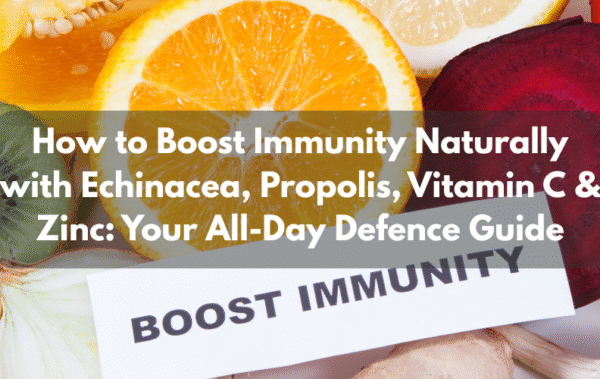No products in the cart.
The Ultimate Guide to Understanding the Benefits of Vitamin B12
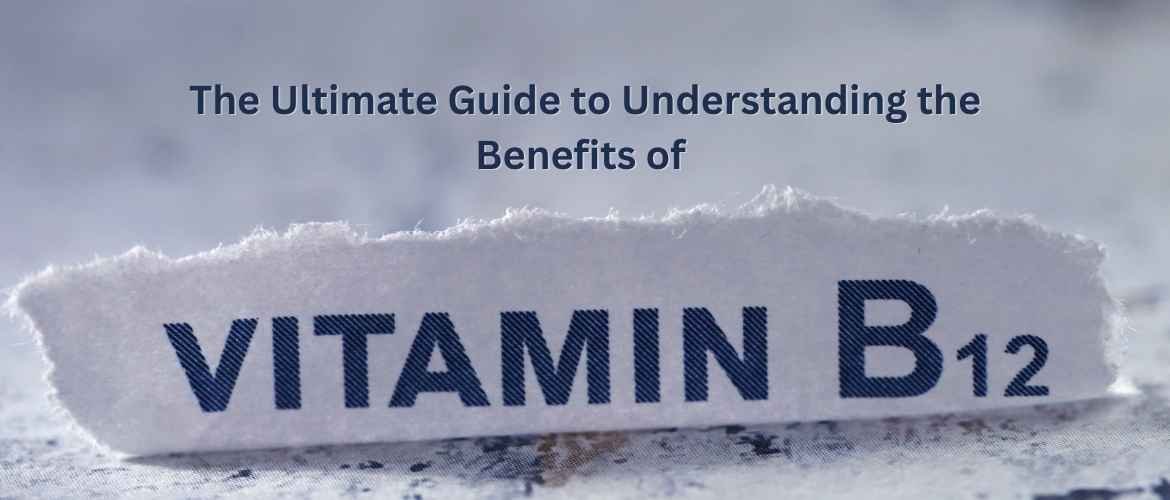
Unlock the secrets to optimal health with our comprehensive guide to the incredible benefits of Vitamin B12. From boosting energy levels and improving cognitive function to supporting a healthy metabolism and promoting radiant skin, Vitamin B12 is truly a powerhouse nutrient that plays a vital role in various bodily functions. Whether you follow a vegan or vegetarian diet, are over 50, or simply want to enhance your overall well-being, understanding the importance of Vitamin B12 is key to maintaining a vibrant and active lifestyle. In this guide, we delve into the science behind Vitamin B12, explore its numerous health benefits, and provide practical tips on how to ensure you are getting an adequate amount of this essential vitamin in your daily diet. Stay tuned to discover how Vitamin B12 can transform your health from the inside out.
What is Vitamin B12?
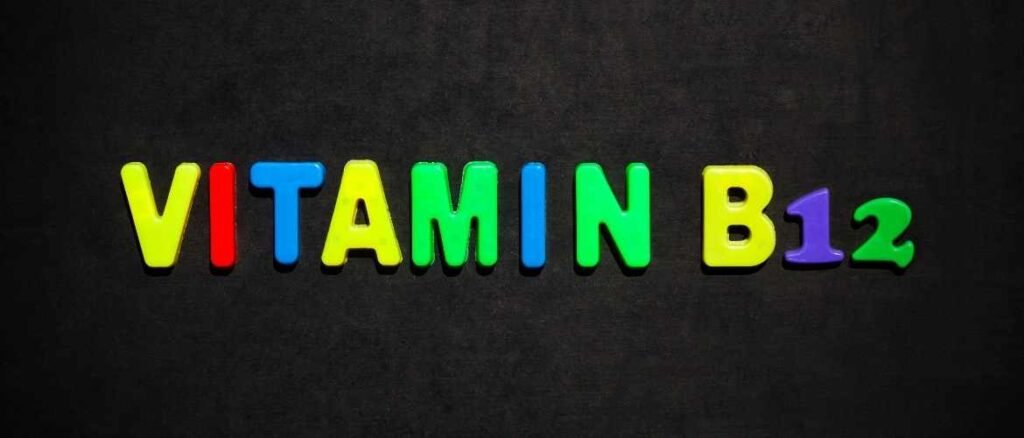
Vitamin B12, also known as cobalamin, is a water-soluble vitamin that plays a pivotal role in numerous biochemical processes within the body. It is a member of the B-vitamin complex, which is essential for energy production and the formation of red blood cells. The structure of Vitamin B12 is unique, as it contains a central cobalt atom surrounded by a complex ring structure, making it the largest and most structurally complex vitamin. This vitamin is crucial for the proper functioning and development of brain and nerve cells, as well as the synthesis of DNA.
The human body cannot produce Vitamin B12 on its own; instead, it must be obtained from dietary sources or supplements. This vitamin is naturally found in animal products, making it a concern for those following a vegan or vegetarian diet. The absorption of Vitamin B12 also requires a special protein called intrinsic factor, which is produced in the stomach. Without intrinsic factor, the body cannot absorb Vitamin B12 effectively, leading to potential deficiencies.
Given its importance, a sufficient intake of Vitamin B12 is essential for maintaining overall health. The recommended dietary allowance (RDA) varies by age, gender, and life stage, but it is generally set at 2.4 micrograms for adults. Understanding the role of Vitamin B12 in the body is crucial for recognizing its impact on health and well-being, which we will explore in greater detail in the following sections.
Importance of Vitamin B12 in the Body
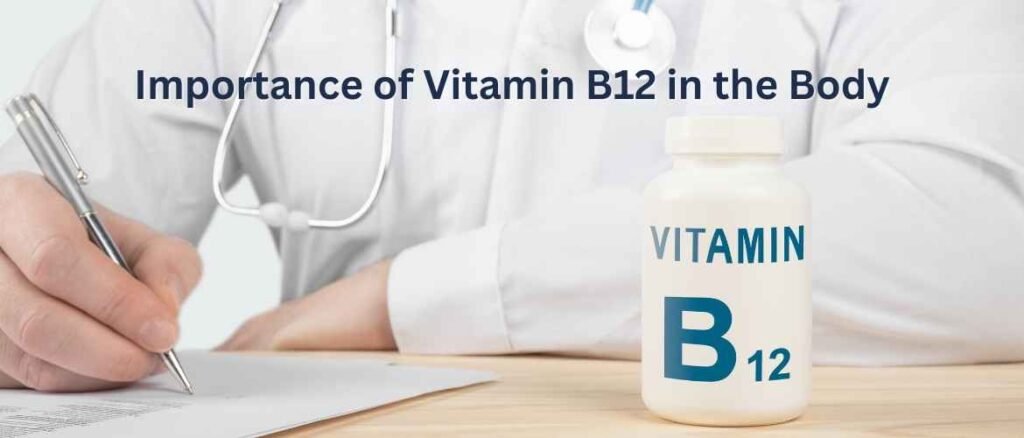
Vitamin B12 is integral to several vital functions within the human body. One of its primary roles is in the production of red blood cells. These cells are responsible for transporting oxygen from the lungs to various tissues throughout the body. Adequate levels of Vitamin B12 ensure the proper maturation of red blood cells, preventing conditions such as anemia, which can lead to fatigue and weakness. Moreover, Vitamin B12 is also essential for maintaining healthy nerve cells. It helps in the production of myelin, a protective sheath that surrounds nerves, ensuring efficient transmission of electrical signals.
Another significant function of Vitamin B12 is its involvement in DNA synthesis. This vitamin plays a crucial role in the production and repair of DNA, which is vital for cell division and growth. Insufficient levels of Vitamin B12 can disrupt this process, potentially leading to cellular dysfunction and a range of health issues. Additionally, Vitamin B12 is also linked to cognitive health; it supports the production of neurotransmitters like serotonin and dopamine, which are essential for mood regulation and overall mental well-being.
Moreover, Vitamin B12 contributes to metabolic processes, particularly in converting carbohydrates into glucose, which the body uses for energy. This energy conversion is critical for maintaining stamina and vitality throughout the day. As a result, adequate Vitamin B12 levels not only support physical health but also enhance mental clarity and emotional stability, making it a vital nutrient for maintaining an active lifestyle.
Signs and Symptoms of Vitamin B12 Deficiency

Vitamin B12 deficiency can manifest through a variety of symptoms, many of which can be quite severe if left untreated. One of the earliest signs is fatigue or weakness, as the body may struggle to produce enough healthy red blood cells. This can lead to anemia, characterized by a lack of energy and pale skin. Individuals may also experience shortness of breath and dizziness, especially during physical activities, as the body fails to transport sufficient oxygen to the muscles.
Neurological symptoms are another concerning aspect of Vitamin B12 deficiency. Many people report experiencing numbness or tingling in their hands and feet, often described as a “pins and needles” sensation. This is due to the vitamin’s essential role in maintaining nerve health. As the deficiency progresses, cognitive impairments may arise, including memory loss, confusion, and difficulty focusing. In severe cases, it can lead to more serious neurological issues, such as balance problems and difficulty walking.
Additionally, some people may notice changes in their mood or mental health due to Vitamin B12 deficiency. Symptoms such as depression, irritability, and anxiety can emerge as the vitamin plays a crucial role in neurotransmitter production. Other signs can include a swollen, inflamed tongue (glossitis), mouth ulcers, and vision problems due to damage to the optic nerve. Recognizing these symptoms early on is vital, as timely intervention can prevent long-term health complications.
Sources of Vitamin B12
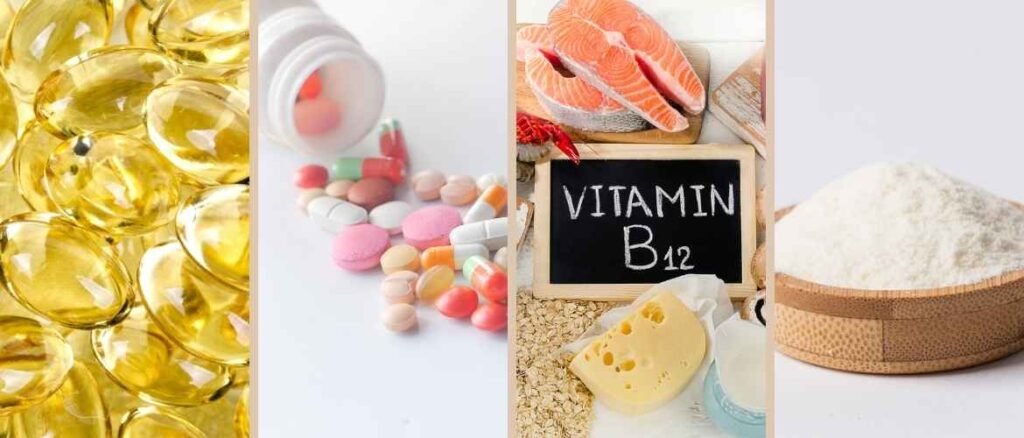
Vitamin B12 is predominantly found in animal-based foods, making it essential for individuals to be mindful of their dietary choices. Some of the richest sources include meat, fish, eggs, and dairy products. For instance, beef liver is one of the highest sources of Vitamin B12, providing significant amounts in just a small serving. Fish such as salmon, sardines, and trout are also excellent options, along with shellfish like clams and oysters. These foods not only deliver substantial Vitamin B12 but also offer other beneficial nutrients, including omega-3 fatty acids and protein.
For those who follow a vegetarian or vegan diet, obtaining adequate Vitamin B12 can be challenging. While certain fortified foods can provide this nutrient, such as breakfast cereals, plant-based milk alternatives, and nutritional yeast, it’s crucial to read labels carefully to ensure that these products contain sufficient levels of Vitamin B12. Supplementation may also be necessary for individuals who do not consume any animal products, as plant-based sources do not naturally contain Vitamin B12.
For individuals over 50, the ability to absorb Vitamin B12 from food decreases due to reduced stomach acid production. Consequently, fortified foods and supplements become increasingly important for this age group. Regardless of dietary preferences, understanding where to find Vitamin B12 is essential for maintaining optimal levels and preventing deficiency.
Health Benefits of Vitamin B12

The health benefits of Vitamin B12 are vast and multifaceted, impacting various aspects of physical and mental well-being. One of the most notable benefits is its ability to boost energy levels. By facilitating the conversion of food into glucose, Vitamin B12 helps combat fatigue and lethargy, allowing individuals to maintain a more active lifestyle. This energy boost can be particularly beneficial for those engaged in regular physical activity or leading busy lives.
Cognitive function is another area where Vitamin B12 shines. Studies have shown that adequate levels of this vitamin are associated with improved memory and concentration. It plays a role in the production of neurotransmitters, which are essential for communication between nerve cells. As a result, individuals with sufficient Vitamin B12 levels may experience enhanced mental clarity and a lower risk of developing cognitive decline as they age.
Furthermore, Vitamin B12 contributes to heart health by supporting the metabolism of homocysteine, an amino acid linked to an increased risk of heart disease. Elevated homocysteine levels can damage blood vessels and contribute to cardiovascular issues. By ensuring adequate Vitamin B12 intake, individuals can help maintain healthy homocysteine levels, thereby promoting heart health. Additionally, Vitamin B12’s role in red blood cell formation helps prevent anemia, ensuring that the body receives the oxygen it needs for optimal function.
Who is at Risk of Vitamin B12 Deficiency?
Certain populations are at a higher risk of Vitamin B12 deficiency due to various factors, including dietary choices, age, and underlying health conditions. Vegans and vegetarians are particularly vulnerable, as plant-based diets often lack sufficient sources of Vitamin B12. Without careful planning and supplementation, individuals adhering to these diets may struggle to meet their nutritional needs, leading to potential deficiencies over time.
Older adults also face an increased risk of Vitamin B12 deficiency. As mentioned earlier, aging can lead to decreased stomach acid production, which impairs the absorption of this vital nutrient from food sources. Additionally, seniors may experience changes in diet or have chronic conditions that affect their ability to consume or absorb adequate Vitamin B12. Regular monitoring of Vitamin B12 levels in this age group is essential to prevent deficiency-related complications.
Individuals with certain medical conditions, such as pernicious anemia, gastrointestinal disorders, or those who have undergone gastrointestinal surgeries, are also at risk. Pernicious anemia is an autoimmune condition that affects the production of intrinsic factor, leading to impaired absorption of Vitamin B12. Meanwhile, conditions like Crohn’s disease or celiac disease can damage the intestines, hindering nutrient absorption. It is crucial for these individuals to work closely with healthcare professionals to monitor their Vitamin B12 levels and explore supplementation options.
How to Test for Vitamin B12 Levels
Testing for Vitamin B12 levels is a straightforward process that can provide valuable insights into an individual’s nutritional status. Healthcare providers typically use a blood test to measure the concentration of Vitamin B12 in the bloodstream. This test is usually performed after a healthcare professional assesses symptoms or risk factors associated with Vitamin B12 deficiency. The results can help determine whether further intervention, such as dietary changes or supplementation, is necessary.
In addition to measuring serum Vitamin B12 levels, healthcare providers may also evaluate other related markers to assess overall vitamin status more accurately. For instance, methylmalonic acid (MMA) levels can indicate Vitamin B12 deficiency, as elevated MMA levels are associated with inadequate Vitamin B12 availability. Homocysteine levels may also be measured, as high levels can indicate a deficiency in Vitamin B12 or other B vitamins.
It is essential for individuals to communicate openly with their healthcare providers regarding any symptoms or dietary restrictions they may have. Regular monitoring of Vitamin B12 levels can help identify deficiencies early on, allowing for timely intervention and prevention of more serious health complications. If deficiency is confirmed, healthcare providers will recommend appropriate strategies to restore optimal Vitamin B12 levels.
Vitamin B12 Supplements and Dosage

Vitamin B12 supplements come in various forms, including tablets, capsules, and sublingual (under-the-tongue) formulations. Additionally, injections are available for individuals with severe deficiencies or absorption issues. When considering supplementation, it is vital to consult with a healthcare professional to determine the most suitable form and dosage for individual needs.
The recommended dietary allowance (RDA) for Vitamin B12 for adults is typically around 2.4 micrograms per day, although this may vary based on factors such as age, pregnancy, or lactation. Individuals at risk of deficiency, such as vegans, vegetarians, and older adults, may require higher doses to ensure adequate levels. Some supplements may provide doses significantly above the RDA, which is generally considered safe, as Vitamin B12 has a low potential for toxicity due to its water-soluble nature.
When selecting a Vitamin B12 supplement, it is essential to choose high-quality products from reputable brands. Look for supplements that contain methylcobalamin or cyanocobalamin, two common forms of Vitamin B12. Reading labels and checking for third-party testing can help ensure product quality. Additionally, it is crucial to discuss any potential interactions with medications or other supplements with a healthcare provider before starting a new regimen.
Incorporating Vitamin B12 into Your Diet
Integrating Vitamin B12 into your diet can be both enjoyable and straightforward, especially for those who consume animal products. For omnivores, including a variety of foods rich in Vitamin B12 can help maintain optimal levels. Incorporate options such as lean meats, fish, eggs, and dairy products into your meals. For breakfast, consider yogurt or fortified cereals, while lunch could include a turkey sandwich on whole grain bread. Dinner might feature grilled salmon or a hearty beef stew, providing ample amounts of this vital nutrient.
For individuals following a vegetarian or vegan diet, it’s essential to be proactive in seeking fortified foods and supplements. Many plant-based milk alternatives, such as almond or soy milk, are fortified with Vitamin B12. Nutritional yeast, often used to add a cheesy flavor to dishes, is another excellent source that can be sprinkled on popcorn, pasta, or salads. Additionally, some breakfast cereals are fortified with Vitamin B12, making them an easy option for those looking to boost their intake.
Meal planning can also play a critical role in ensuring adequate Vitamin B12 consumption. Keeping track of fortified foods and incorporating diverse sources into your weekly diet can help prevent deficiencies. For those concerned about their Vitamin B12 levels, consulting with a registered dietitian can provide personalized strategies to enhance dietary intake and ensure that nutritional needs are met.
Conclusion: The Key Takeaways about Vitamin B12
In summary, Vitamin B12 is an essential nutrient that plays a critical role in maintaining optimal health and well-being. Its importance spans various bodily functions, including red blood cell formation, neurological health, DNA synthesis, and energy metabolism. Recognizing the signs and symptoms of deficiency is crucial for timely intervention, particularly for those at higher risk, such as vegans, vegetarians, and older adults.
Ensuring adequate Vitamin B12 intake can be achieved through a well-balanced diet that includes animal products or fortified foods. For individuals who struggle to meet their needs through dietary sources, supplements may offer an effective solution. Regular testing for Vitamin B12 levels can help monitor nutritional status and prevent potential deficiencies.
By understanding the myriad benefits of Vitamin B12 and taking proactive steps to incorporate it into your lifestyle, you can unlock the potential for enhanced energy, improved cognitive function, and overall better health. Embracing this powerful nutrient is a vital part of maintaining a vibrant and active life, ensuring that you thrive both physically and mentally.
Buy Our Vitamin B12 Products:




